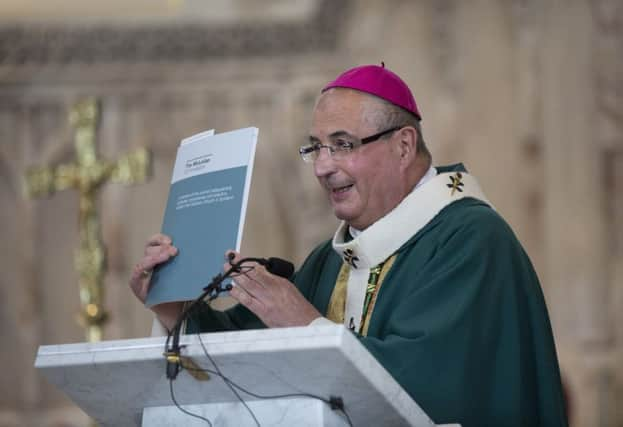A promise to protect, a pledge to heal


SINCE my appointment in 2013 as National Safeguarding Co-ordinator for the Bishops’ Conference of Scotland, a church body that enables the bishops of the eight Scottish dioceses to work together, there have been several major initiatives:
Starting in 2013 there has been annual publication of all allegations reported each year. At the same time, a historical review of all case files of those against whom allegations were made between 1947 and 2015 was launched and, lastly, a review of safeguarding policies and practice was instituted.
Advertisement
Hide AdAdvertisement
Hide AdThe annual publication of the Audit of Allegations is now an essential part of the work of the Scottish Catholic Safeguarding Service (SCSS). The audits reflect a pattern of reporting many years after the abuse or other harm took place. This is consistent with the complex reasons why those who have been harmed find it difficult to disclose what happened to them. It is equally important that survivors of abuse feel confident that in reporting to the safeguarding teams within the Church, that they are both believed and that appropriate professional action is taken.
Every diocese and all religious orders responded to the historical review by appointing teams to review all case files. Any allegations which had been made and reported to the police were recorded – together with the outcome. Any allegations found that were not reported to the police or had not been progressed have now also been reported to the police, even if the alleged perpetrator is deceased. The recording forms are being processed externally and we await the outcome of that report.
The review of current safeguarding polices was conducted by a commission chaired by Dr Andrew McLellan. It has now concluded this major task and we welcomed the report earlier this month. I am personally and indeed professionally very pleased to have the report to strengthen the position of safeguarding within the Church. This was a development we initiated and are most eager to see brought to fruition through the implementation of the recommendations which we accepted in full.
They include: support for survivors and a public apology for the harm they have suffered within the Church, which Archbishop Philip Tartaglia, president of the Bishops Conference delivered on 18 August; the preparation of a new safeguarding manual; independent scrutiny of safeguarding standards; regular training and professional development for everyone involved in safeguarding, and the development of a theology of safeguarding.
Ultimately, these are designed to deliver justice for those who have been abused and for those against whom allegations have been made.
The McLellan Report and the recommendations therein provide a solid framework to build upon and allow the Church in Scotland to evidence its commitment to ensuring we provide a professional and highly skilled safeguarding service. An important area of expertise will be enabling those who have suffered abuse to come forward and be heard. For survivors, it is very important: to be heard and to be believed. In doing so, we can together, as a safeguarding service, support those who are suffering because of the impact of abuse within our Church. The public apology made by Archbishop Tartaglia was an essential step towards healing for so many.
Being able to respond to the needs of the many volunteers who give of themselves so generously in our parishes and organisations to ensure that children, young people and vulnerable adults are kept safe will be another important area for attention. Ensuring safe recruitment and a rigorous training programme will enable all our volunteers to work confidently and safely.
Our next task is to produce an action plan based on the recommendations contained in the McLellan Report, but already SCSS is working on preparing a new safeguarding manual and training pack for volunteers to be launched in November.
Advertisement
Hide AdAdvertisement
Hide AdIn addition, a National Counselling Service will be launched in October and an extensive training programme will be directed by the newly formed training executive group, with representatives from across Scotland, which will provide training for all volunteers, religious, seminarians, deacons, priests and bishops. The work of the National Safeguarding Service will continue to build on the lessons learned from the McLellan Commission, while striving to protect the vulnerable from harm and to reach out to heal those who have suffered.
• Tina Campbell is National Safeguarding Co-ordinator, Bishops’ Conference of Scotland
SEE ALSO